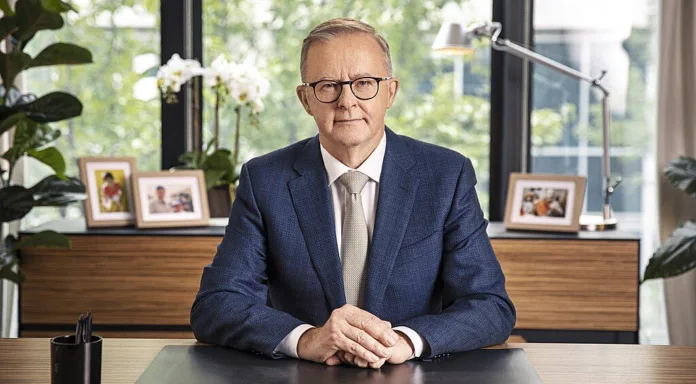Albanese courts steel giants in Shanghai as talk of Darwin Port reclamation stirs tensions
Prime Minister Anthony Albanese has urged Chinese industry leaders to deepen economic cooperation with Australia, even as speculation over a potential reclaiming of the Port of Darwin threatens to sour fragile ties between the two nations.
In a high-stakes six-day visit to China, Albanese addressed top executives from the steel sector during a business roundtable in Shanghai, underscoring the importance of Australian coal and iron ore exports to China’s ongoing industrial growth. These commodities—worth hundreds of billions of dollars—have long formed the backbone of bilateral trade, and Canberra is keen to preserve that flow.
But looming over the charm offensive is the growing domestic pressure in Australia to take back control of the strategically critical Port of Darwin. The northern port was controversially leased to Chinese company Landbridge for 99 years in 2015, triggering national security concerns. A formal review of the lease last year found no immediate grounds to terminate it, but calls for a re-evaluation have persisted.
According to diplomatic observers, any move to revoke the lease could spark a backlash from Beijing, which only recently lifted punishing trade sanctions on Australian wine and barley after a prolonged economic freeze. Senior trade officials in Canberra fear that reclaiming the port could reignite tensions, potentially endangering key exports—especially iron ore, which China relies on for steel production.
Still, Albanese walked a careful line during his Shanghai engagements, spotlighting Australia’s role as a “trusted supplier” of high-quality raw materials needed for China’s infrastructure ambitions and green energy transition. He also acknowledged China’s growing push to decarbonise and its implications for fossil fuel trade, especially thermal coal.
Embed from Getty Images“Our resource exports remain vital to China’s development,” the Prime Minister told executives from the country’s steel conglomerates. “But we recognise the need to align future trade with environmental goals. Australia stands ready to supply the materials that will power both growth and decarbonisation.”
The business-first approach follows a gradual thawing in diplomatic relations since the 2022 federal election, with Albanese meeting Chinese President Xi Jinping and other senior leaders multiple times to reset a partnership once described as “frozen.”
Yet defence hawks at home have criticised Albanese for not taking a harder line on the Darwin Port issue. Shadow defence spokesperson Andrew Hastie has repeatedly argued the Landbridge lease represents “a strategic blind spot” and urged the government to act swiftly to bring the port back under Australian control.
China, for its part, has remained tight-lipped about the possibility of losing Darwin. But officials in Beijing have previously warned that unilateral action would be interpreted as “unfriendly interference” and may prompt a review of bilateral trade commitments.
During his current visit, Albanese has avoided direct reference to the port, instead focusing on investment, market access, and environmental collaboration. However, his remarks on aligning trade with net-zero goals were interpreted by some as a subtle nod to Australia’s long-term strategy to reduce its reliance on coal exports while expanding its critical minerals portfolio.
Whether this trip results in firm agreements or merely keeps diplomatic channels open remains to be seen. But for now, both sides appear to be walking a tightrope—eager to avoid the missteps of recent years, but wary of brewing tensions beneath the surface.
